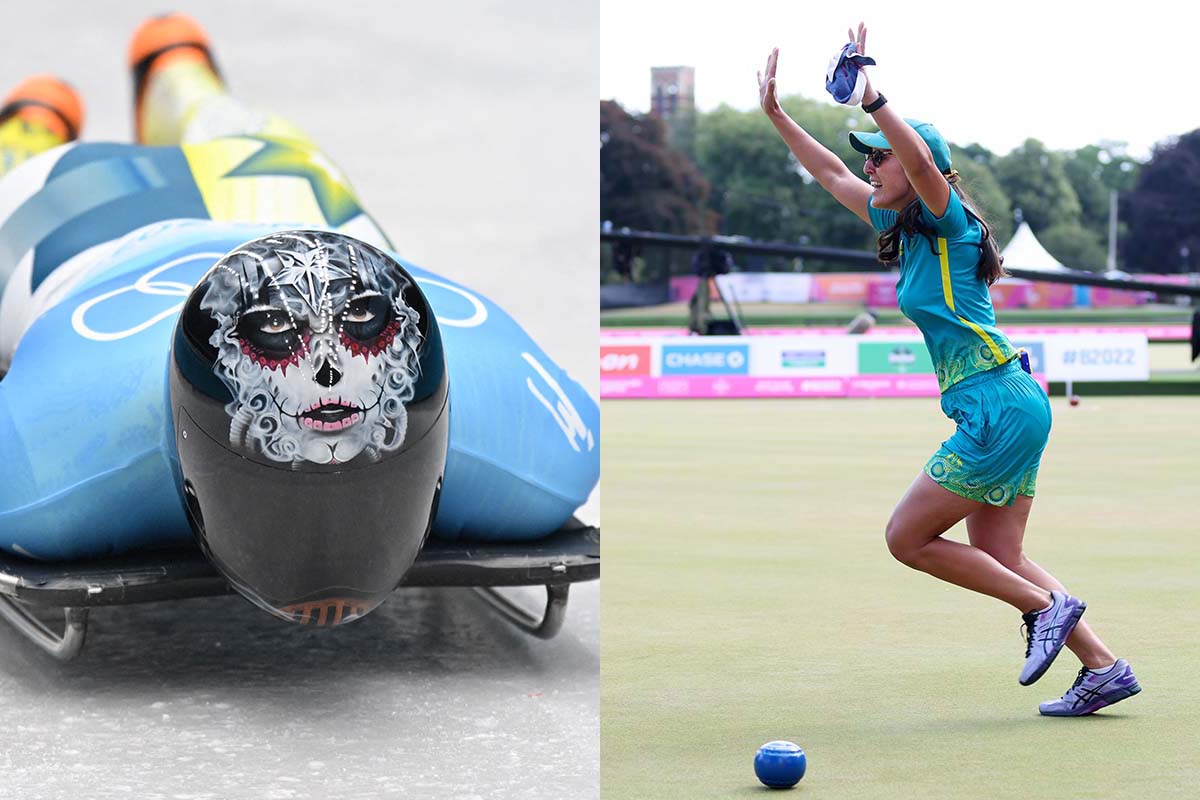Mental Health Week 2022
National Mental Health Month is an initiative of the Mental Health Foundation Australia, seeking to raise awareness and promote better mental health for all.
Mental Health Week began on October 8 and the theme for this year is, Where we live. How we live. What we’ve lived. Focusing on understanding how the body, mind and environment intersect and how this is essential to overall wellbeing.
2022 Commonwealth Games gold medallist in lawn bowls Kristina Krstic and Beijing Winter Olympian skeleton slider, Nick Timmings, share their experience and how they support their mental health.
“Mental health is so important to me because it helps me to cope with the stresses of life and my sport, have good relationships, work and train productively and realise my full potential,” said Krstic.
“Talking about mental health is just as essential as physical health and it is important to educate others on what mental health really is and to let them know that they’re not alone.
“I believe that the one major thing that has held me back from achieving my goals is my mental health and internal thought processes. I’ve always struggled with self-belief, confidence and the pressure that come with my sport.”
For Nick Timmings, who competed at his first Winter Olympics in Beijing earlier this year, is familiar with the challenges and different situations in life that can affect one’s mental health.
“Like everyone else, I go through times of feeling lonely, down and have self-doubt. But to me, good mental health is being able to identify these times and having different avenues to be able to pick yourself back up.
“Being an athlete and competing away from home all the time, definitely tests my mental health. Particularly when competing overseas and training/travelling by yourself, it’s easy to get caught up in your own thoughts.”
“Bad training sessions or races and not having family and friends around you to help take your mind off it, really does make me struggle. I also think this constant fear of failure and the stress associated with it is the biggest challenge all athletes go through.”
For Kristina and Nick, maintaining an awareness of how to help their mental health both during and outside of competition, is an essential skill they are both still learning to harness.
Athlete care is a guiding principle at WAIS, with Krstic crediting the support from WAIS psychologist Courtney Riggs as important to managing her mental health and wellbeing.
“To maintain my mental health in and out of competition, I schedule regular monthly psychology sessions with my sports psych from WAIS, Courtney Riggs. She has really helped me to manage my anxiety levels during competition and help me to build my self belief and confidence,” Krstic outlined.
“I make sure to make time for the things that make me happy out of competition such as spending time with my partner, family and friends, exercising regularly and going outdoors. I also make sure to keep in contact with my family and friends whilst I’m away competing which helps me to stay happy.”
Having something outside of sport is something Timmings credits as vital to supporting his mental wellbeing.
“If I’m having a bad day, I will completely remove myself from my sport or the situation. If I am overseas this could be going for a walk, getting a coffee, talking to friends back home or talking to friends on tour about different things unrelated to sport.”
“Having hobbies to take my mind off everything going on is also a great way I like to keep occupied when at home and out of competition or in season between training and races.”
For Kristina and Nick, maintaining an awareness of how to help their mental health both during and outside of competition, is an essential skill they are both still learning to harness.
“Make sure sport isn’t the only thing you have day in and day out. Sport can be your full-time passion and to get to the top levels it needs to be your main focus, but if you don’t have interests or hobbies on the side it will be extremely difficult to get yourself back up when you are having low moments,” Timmings explained.
“It’s so important to make sure you give some time to your passions outside of your professional career and keep your friends and family close for support, not forgetting to support them as well as they may go through times where they need you too.”
Krstic added, “I strongly recommend having someone to talk to, whether they are a professional, friend or family member. My sports psychologist has greatly assisted me in balancing the high demands of my sport and regulating my internal thought processes.
“I believe that it is so important to develop mental skills and strategies to help with dealing with pressures within your sport, staying focused and managing anxiety levels.
To find out more about mental health week head to https://mentalhealthweek.org.au

